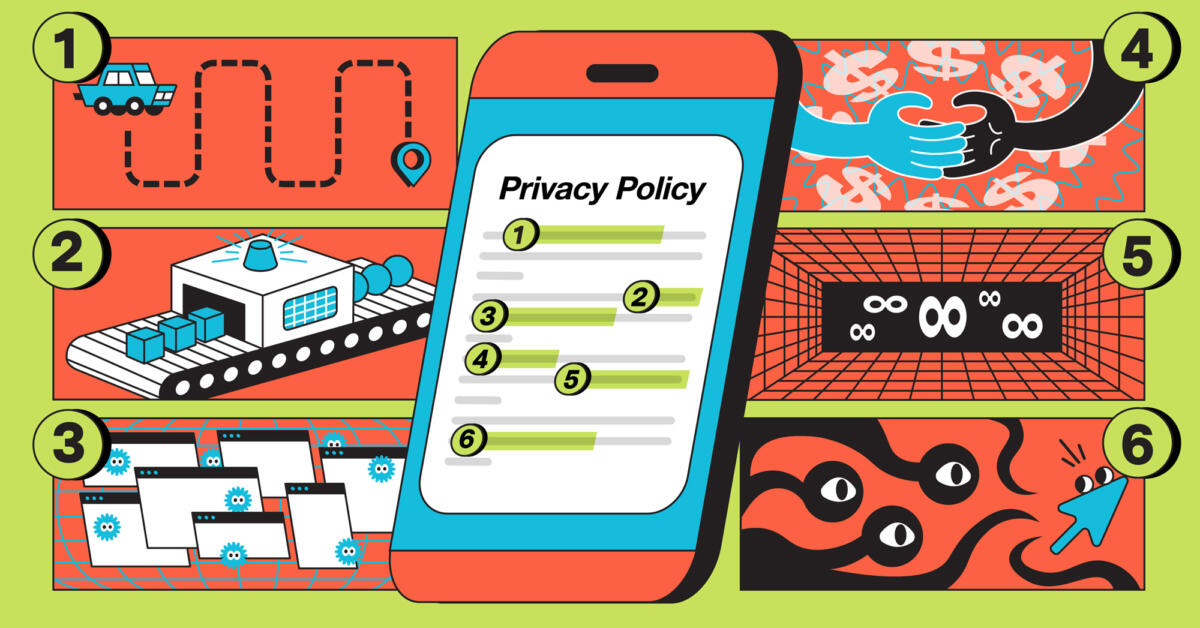- cross-posted to:
- privacy@lemmy.ml
- cross-posted to:
- privacy@lemmy.ml
cross-posted from: https://lemmy.zip/post/1076839
Archived version: https://archive.ph/zPlSB
Archived version: https://web.archive.org/web/20230805061146/https://themarkup.org/the-breakdown/2023/08/03/how-to-quickly-get-to-the-important-truth-inside-any-privacy-policy
It was a joke about T&C’s being so long that nobody will read them (and this article being long too). I did actually read the article but it wasn’t overly helpful for avoiding intrusion. Good to know what the actual terms refer to though, and the structuring behind the privacy policies. Appreciate the upload, thanks:)
Tldr
Search through document for a long ass list of keywords to find large amounts of scummy bullshit hidden within meaningless fluff bullshit. Alternative terminology potentially ensues for making it more confusing.
That does not sound quick at all
Nope lol. It’s basically a wall of text explaining how to skim a different wall of text to see if you are being legalese’d. Nothing about it is quick for people that can’t/don’t already have some degree of speed reading or skimming ability.
I remember there was a website where you could choose a companys Privacy Policy and it would give you the important points.
I just assume if there is a privacy policy, then the policy is no privacy.
Def the other way around.
Writing a privacy policy generally forces a company to make commitments about what they will and won’t do with data they collect about you.
No privacy policy means anything goes — they didn’t say what they will or won’t do, so you can’t sue them if they do something sketchy.
But many jurisdictions require companies to publish a privacy policy, so just about any company these days will have one. The devil is in the details though, as this article points out.
Eh I figure everything you put online is on a marketplace somewhere. If it’s not the website that sold it, it’s the hackers that stole the data. Even when they claim they don’t store the data there always seems to be a plain text storing backup server that they forgot about. Then there’s data scrapers and 3rd party embedded trackers (looking at you share to Facebook button). And good luck convincing a court that thinks a PC is just a chrome portal that your owed damages for a company leaking your data.
Much easier to control the data at the source and keep websites from getting data in the first place. Trust is long dead online.
Just copy and paste t&c into chatgpt and have it summarize or point out any alarming clauses.
Have your read ChatGPT Privacy Policy? Most sane people that read it wouldn’t use it.
https://openai.com/policies/privacy-policy
Just dont provide real name and dont chat about private stuff and I think its tolerable
I guess we have very different definition of tolerable. Not only they collect everything you do there and retain it indefinitely, but they share everything with their affiliates and vendors per that privacy policy. And on top of that everything is tied to a phone number (I would also assume they block VOIP, but haven’t checked).
deleted by creator
deleted by creator
They require phone number for registration. Unless that changed recently, then please correct me.
It’s also possible you use some other service that uses ChatGPT API, instead of OpenAI ChatGPT itself.
Let’s all throw away our devices and live in the woods. Only insane people wouldn’t.





